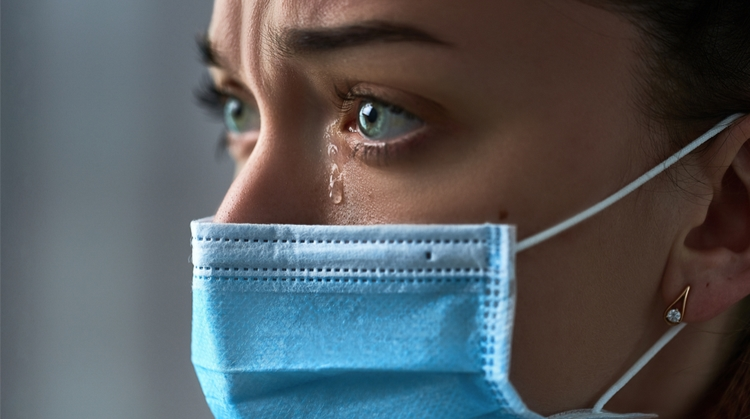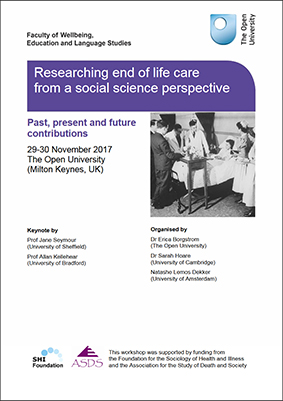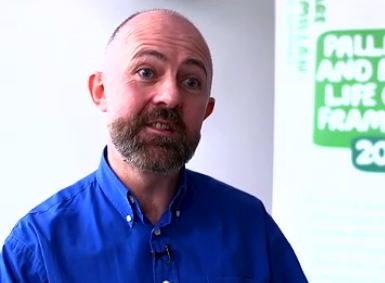Completed projects
Coronavirus pandemic: reviews of existing literature
As a result of the pandemic, members across the research group have been conducting a range of review related to topics of death, grief, and funeral practices. Dr Kerry Jones has led on a rapid review to explore the impact of the pandemic on the grief experiences and mental health of children and young people, in particular death anxiety. We found that children and young people are potentially very vulnerable to the emotional impact of traumatic events that disrupt their daily lives. Key areas of concern include: Death anxiety, and fear of infection; lack of social interaction and loss of routine. Another rapid review led by Dr Kerry Jones involved the care home staff emotions, stressors and coping with death during viral outbreaks. Most studies indicated that viral outbreaks have a negative psychological impact for care workers, although one study suggested such outbreaks can foster resilience and staff reflection. There is some indication that these impacts can be sustained over time. There was a lack of discussion about the impact of grief. Additional reviews are ongoing amongst the wider Open Thanatology team. An overview of several of these are written in this article by Dr Kerry Jones, Dr Sharon Mallon and Dr Erica Borgstrom.

COVID-19: Vulnerable young people living with life-limiting/life-threatening conditions and their families: A study of the non-intended consequences of epidemic control decisions
Dr Sarah Earle and Dr Maddie Blackburn are working with co- researchers, other academics and charitable organisations on this empirical study of the impact of pandemic mitigation measures on young people living with life-limiting/life-threatening conditions and their families.
Death Anxiety among Children and Young People During Covid-19: An exploratory study identifying strategies of support
Dr Kerry Jones with Dr Ben Hughes are exploring children and young people’s (age 9-16) of death anxiety during the Covid-19 pandemic. Of interest is the extent to which Covid-19 pandemic has uprooted ‘normal’ life, causing children and young people to experience unexpected emotional turmoil including death anxiety. The aim is to gather knowledge through personal stories and experiences of those involved in the first stage of the study (adolescents) and thus, investigate the human face of death anxiety in children and young people during the Covid-19 pandemic.
Investigating mortuary services in hospital settings
In 2010 the British Academy funded an ethnographic study into the role of anatomical pathology technologists. Work was based in the mortuary of a large teaching hospital incorporating all mortuary work and the team into bereavement care services. Dissemination has begun with Carol Komaromy (Open University) and Kate Woodthorpe (Bath University) presenting their report Investigating mortuary services in hospital settings at the Anatomical Association's annual conference in 2010.

Narratives of Death, Grief and Loss during Covid-19
A co-edited collection by Dr Erica Borgstrom and Dr Sharon Mallon featuring authors all related to the Open University (students, staff and alumni). The current pandemic has brought death and grief to the forefront of the news and people’s daily experiences. This book captures first-hand accounts of loss that reflect the things which have challenged us, and those which have helped us to cope. By soliciting contributions from within the OU family, the editors have also sought to generate a sense of community and provide a space for individual and collective grief within the university. The edited collection is expected to be published in late 2021.
Nursing students’ experiences of working with the dead, dying and the dead body
Dr Kerry Jones, Prof Jan Draper, and Nerys Boulton are interviewing OU nursing students’ about their experiences of providing end of life care and managing a dead body following an international scoping review of the literature on nurses early encounters with death and dying.

Researching End of Life Care from Social Science Perspectives
This was a two-day workshop in November 2017 designed to reflect on the past sociological and anthropological engagements with end of life care practice in order to enable future contributions to understanding care practices and informing policy. The workshop is generating a set of online videos, a series of papers in European Journal of Palliative Care (EJPC), and a series of editorials in journals and professional magazines. You can find these outputs as they come available in Resources and Publications.
Sex, Intimacy and young people with life-limiting conditions
Dr Maddie Blackburn and Dr Sarah Earle worked with the Adversi Team to create an OpenLearn resource, Let’s Talk about. Sex, intimacy and relationships. Research completed and publications to date included on The Open Learn portal. With others, a winner of the Learning on Screen Awards 2020.

Spirited Stoke: Spiritualism in the everyday life of Stoke-on-Trent (SpELS)
This AHRC funded project explored how spiritualism is mapped across the historical and contemporary fabric of the city of Stoke. Led by Dr Sara MacKian, School of Health, Wellbeing and Social Care, Professor Steve Pile from the Faculty of Arts and Social Sciences, and Research Associate Nadia Bartolini, the project uncovered the hidden practice of spiritualism in Stoke, going beyond its well recognised industrial past.

The Open University and Macmillan end of life care training packs
In 1997 the OU completed a 3 year research project into the need for palliative care for older people in care homes. The results highlighted that people were not receiving good quality care at the end of life. The OU took 15 recommendations to the Department of Health and were awarded further funding to support the development of education and training materials for care home staff. In 2011, in partnership with Macmillan Cancer support the OU developed and disseminated both participant and facilitator packs that would provide staff with the learning materials they needed to provide quality end of life care.

Contact us
email: erica.borgstrom@open.ac.uk
